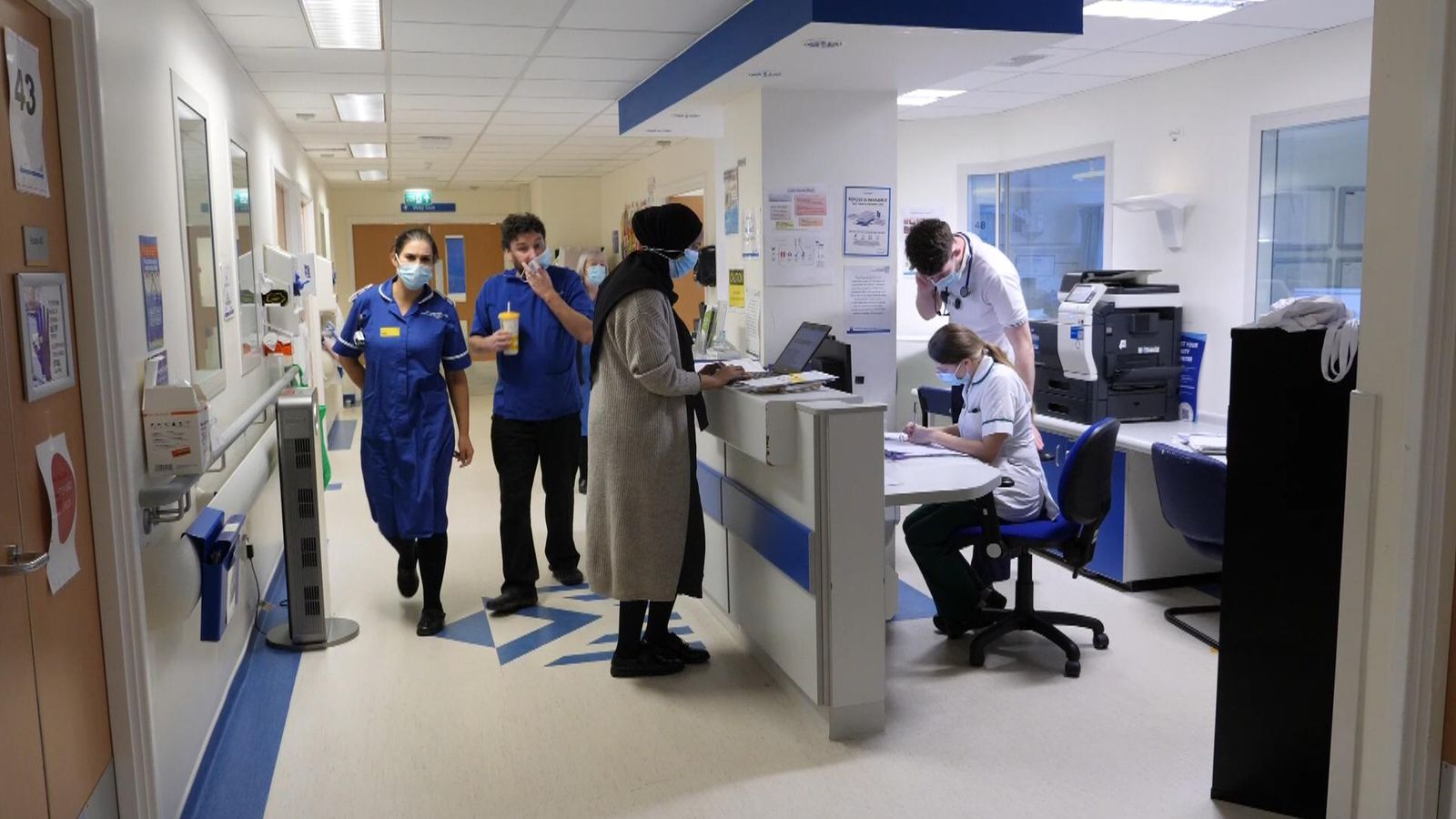Tackling inflation takes priority over above-inflation public sector pay rises, says Chancellor Jeremy Hunt

The government’s top responsibility is to tackle inflation, Chancellor Jeremy Hunt has told Sky News as thousands of public sector workers go on strike.
Mr Hunt said the strikes, which are taking place every day until the end of the year, are a “symptom of the fact that people are very worried that their pay packets are not going as far as they would have” last year, due to inflation.
He insisted the reason the government is not agreeing to above-inflation pay rises is because it is committed to getting inflation under control.
Military to help NHS with ambulance strikes as COBRA strikes meeting held – live politics updates
Inflation reached 11% in October and the government has previously argued big pay rises could push inflation even higher as companies might increase prices to cover higher wages.
Mr Hunt told Sky News: “My number one responsibility as chancellor, the number one job of the government, is to make sure that we tackle inflation, and that will deal – I think – with the underlying anger that many people feel.”
He added that it is a “very challenging international picture” and about a third of the world’s economies are predicted to be in recession this year or next.
“Truthfully, it is likely to get worse before it gets better, which makes it even more difficult when we have big public sector strikes going on at the moment,” he said.
“But we have a plan in place and the Independent Office for Budget Responsibility says that plan will more than halve inflation over the next year.”
Advertisement
Read more: Which industries are striking and when?
Please use Chrome browser for a more accessible video player
1:06
‘Will health secretary talk to nurses to avert strikes?’
Nurses are going on strike for the first time ever on Thursday and are among 10 industries taking action this week.
Unions representing nurses have said the government is refusing to even get around the table to talk about a pay rise.
Ministers over the weekend said it was the responsibility of the independent pay review bodies to determine what public sector pay is, not the government.
Asked why the government is not negotiating with nurses, Mr Hunt said: “We have to be very careful, we recognise the position that unions hold is completely sincere, because of the challenge of 11% inflation.
“On the other hand, we also have a sincerely held position, which is that we don’t want to do anything that would lock in that high inflation rate for a long time to come.”
He said the independent pay review body processes should be supported because of this.
Each public sector has its own pay review body made up of experts in that field who consult with unions and staff while taking into account parameters set by the government to come up with a final pay recommendation.
Please use Chrome browser for a more accessible video player
0:32
Offer ‘too good to refuse’
Mr Hunt added: “For this year, with the independent pay review body, we agreed with a pay rise for nurses which is comparable to the private sector.”
Health Secretary Steve Barclay on Monday wrote to the Royal College of Nurses asking them to provide times for a meeting, but a government source told Sky News it will not be about pay and instead will look at other ways to support nurses.
“The Secretary of State remains happy to discuss all other ways to improve working conditions across the NHS as he has been stressing in the recent meetings with the unions,” the source said.
Labour has questioned why the government will not negotiate directly with the unions on pay.
Shadow health secretary Wes Streeting told Sky News on Sunday: “It’s completely unreasonable for the government not to want to negotiate.
“I think they are spoiling for a fight.
“The government’s line is a complete joke on that, there hasn’t been a single minute of negotiation.”
Treasury minister Andrew Griffith told Sky News on Monday if the government starts overruling independent pay bodies then that “makes a mockery of the process”.

